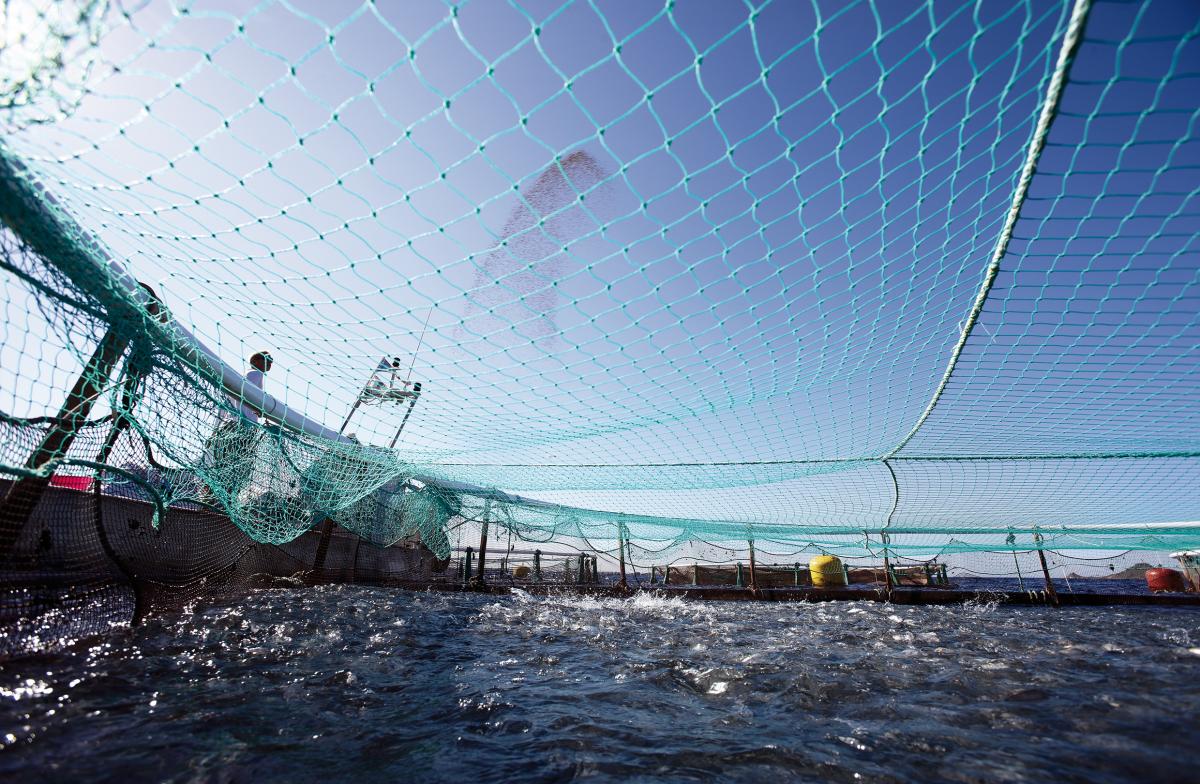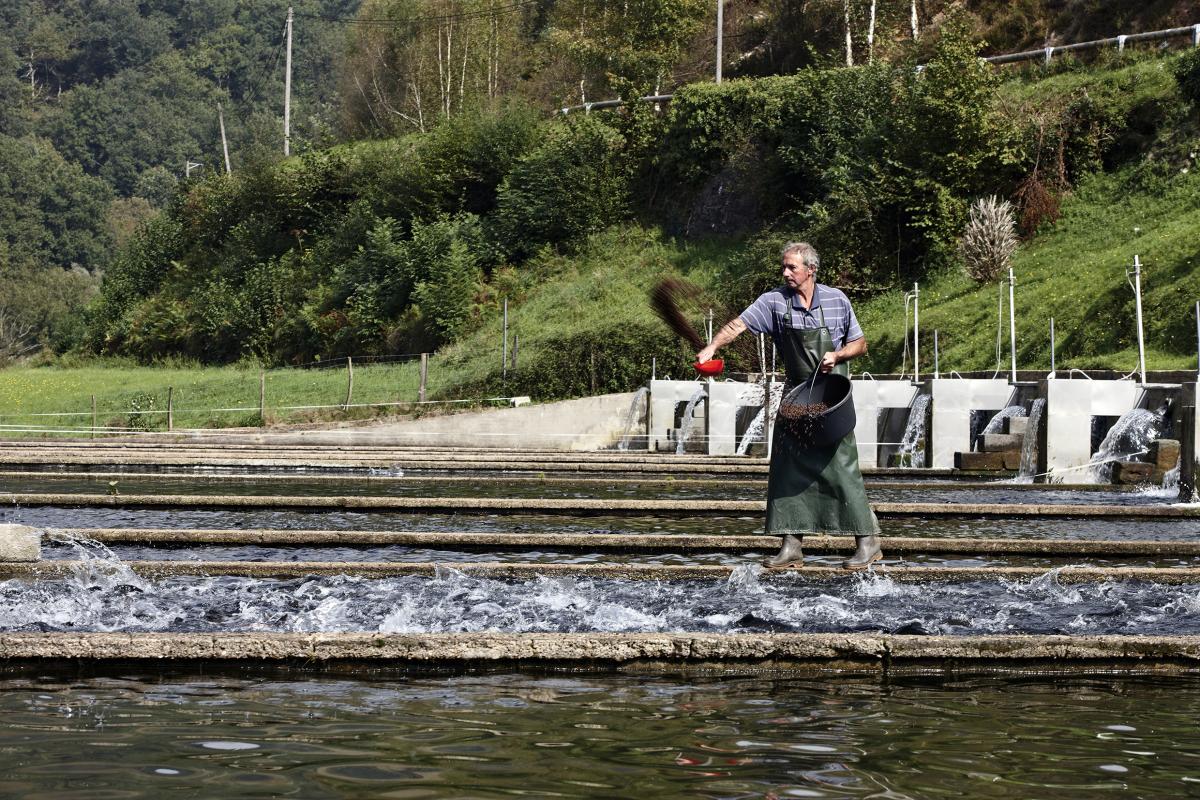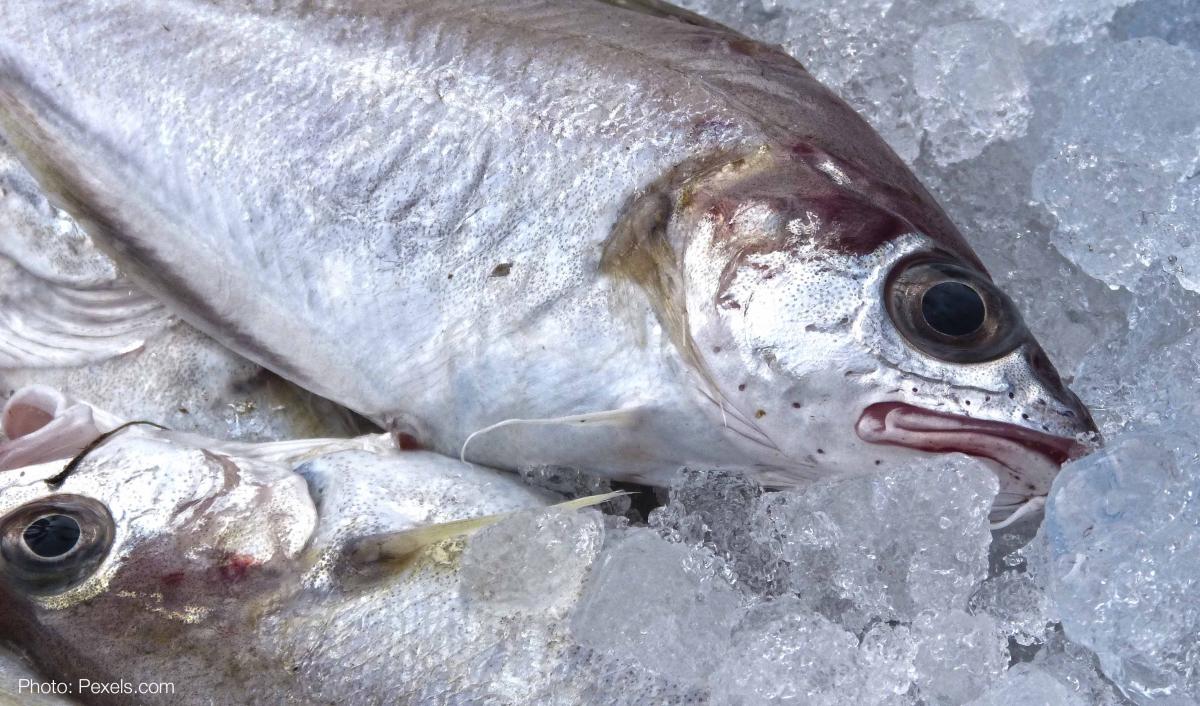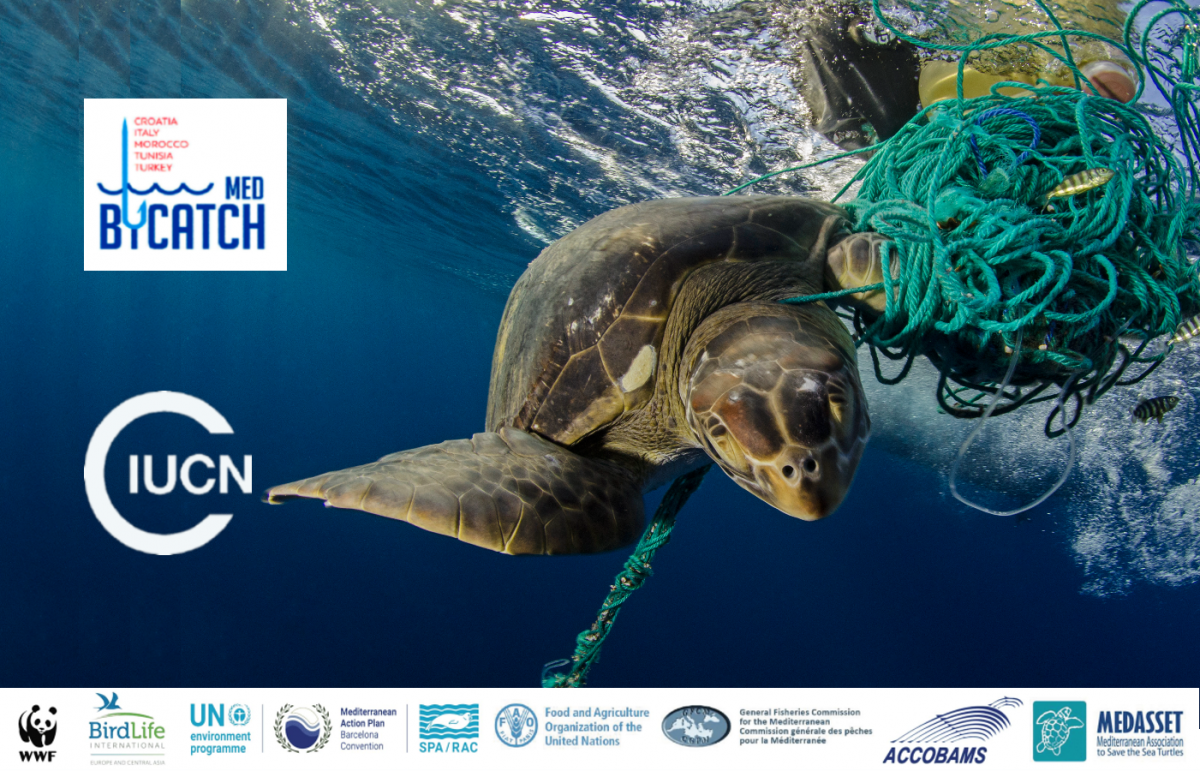Vegetarian feed one of the keys to sustainable fish farming – IUCN report
Making farmed fish more ‘vegetarian’ by feeding them terrestrial plants, algae, or other alternatives to feed made from wild fish will continue to reduce the environmental impact of the fast-growing fish farming sector, according to a new IUCN report
The report looked at the sustainability of the major fish feed ingredients that make up the protein and lipid sources required in aquaculture. It also investigated sustainable alternatives to one of the raw materials used in fish feed: fish meal and fish oil made from wild fishes such as anchovies and other marine wildlife. These small wild harvested fish species play critical roles in marine ecosystems as food for sharks, whales and seabirds. Around 15 million tons of wild fish are currently caught each year to produce fish meal, with about 60-70% of this used in aquaculture.
The IUCN report shows that a general trend has been emerging, particularly in European aquaculture, to replace fish meal and fish oil in fish diets with other ingredients. This aims to protect ecosystems and to ensure the sustainability of fish feed, and tends to turn carnivorous fish such as salmon more ‘vegetarian’.
The report recommends looking into a wider range of raw materials rich in protein and fat that can satisfy the nutritional requirements of farmed fish. Alternative raw materials include plants such as soybean, rapeseed, and sunflower – already widely used in European fish feed, as well as prospective raw materials such as algae, insects and animal by-products. The report’s authors also point to a need for more research into the suitability of all these materials, and a need to develop local production and adapt regulations when required.
“Fish farming represents over 50% of global fish production for human food and significantly contributes to global food security. This report shows that the fast-growing aquaculture sector can become even more sustainable by using fish feed made from a range of sustainable raw materials, from algae to insects. By moving away from fish feed made predominantly from marine wildlife, the fish farming sector contributes to global food security, preserving the health of oceans and driving sustainable economic growth,” says François Simard, Deputy Director of IUCN’s Marine Programme.
In recent years IUCN has worked with actors in the fish farming sector with the aim of reducing the impacts of aquaculture on the environment.
This report was produced by IUCN in close collaboration with the French aquaculture and food manufacturing sectors, represented by the Interprofessional Committee for Aquaculture Products (CIPA), the Technical Institute of Poultry and Small Farm Animals (ITAVI), the Union of Professional Aquaculture Feed Producers (SPPA) and the National Union of the Animal Nutrition Industry (SNIA), and with the support of the French Ministry of Environment and the Sea.
Download the full report and executive summary here.






